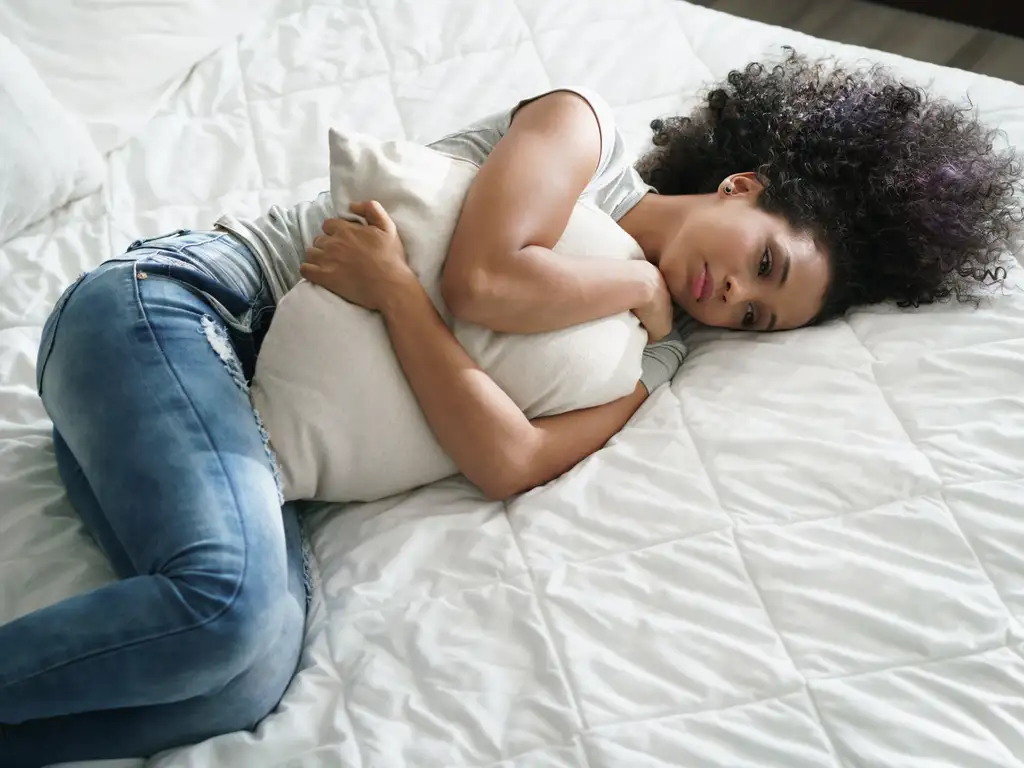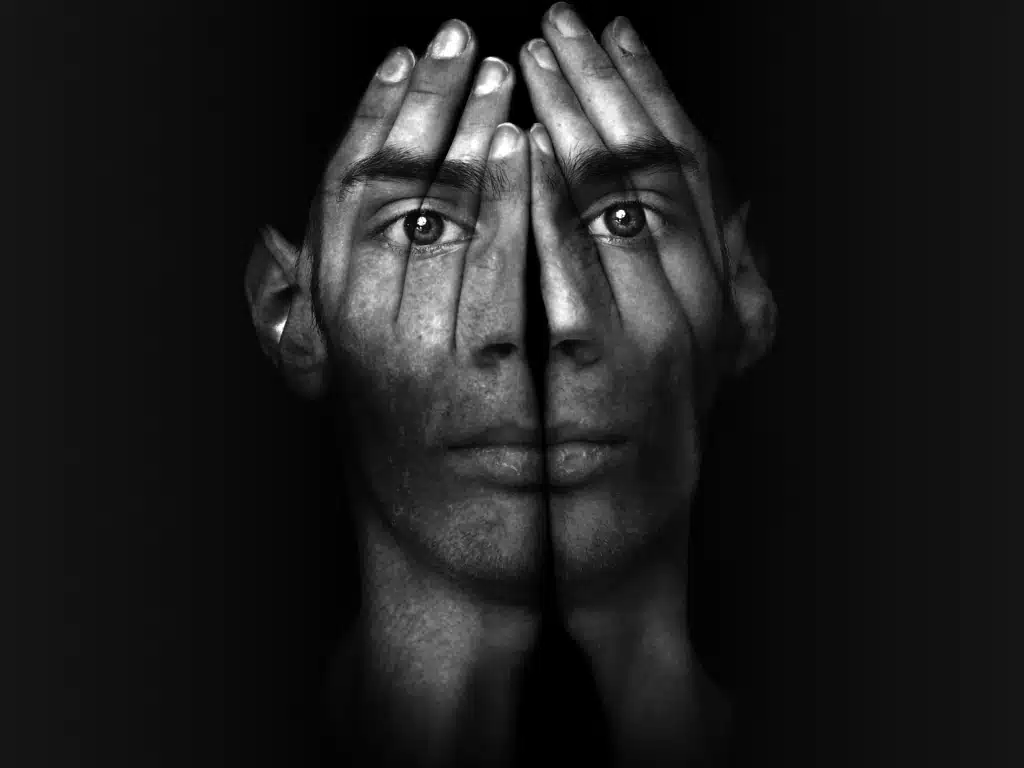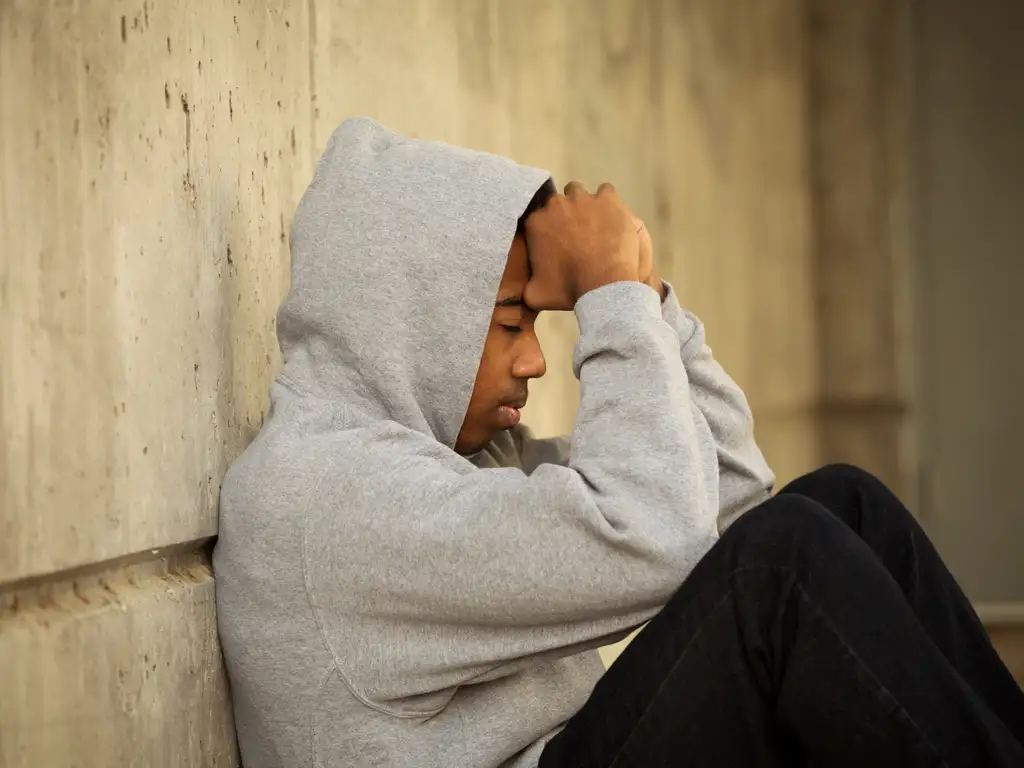Everyone experiences feelings of nervousness, worry, and unease from time to time. For some people, feeling anxious is temporary and resolves when the triggering situation passes. For others, anxiety can become a debilitating experience that can interfere with their ability to manage day-to-day life.
Anxiety can manifest differently for each individual, and not everyone experiences the same symptoms. Additionally, many people struggle to articulate what it feels like to have anxiety, as it can be complicated to describe with words.
This blog post explores common physical and psychological symptoms of anxiety and how anxiety feels for different people.

What Is Anxiety?
Anxiety is a normal human response to a perceived danger. When the brain detects a possible threat, it triggers a fight or flight response in which the body releases stress hormones, such as adrenaline and cortisol, to help prepare you for action. This heightened alertness can increase focus and reaction time if an immediate physical threat is present.
However, a person may experience a fight or flight response without any apparent external trigger. In this case, the body is responding to an internal worry or fear rather than a real-life danger. This can lead to overwhelming feelings of intense anxiety that are difficult to control and can interfere with daily life.

What Are Common Causes of Anxiety?
The direct causes of anxiety and anxiety disorders are still a mystery, but they can be attributed to several genetic, psychological, and environmental factors.
Anxiety may be triggered by circumstances such as:
- Frequent and intense stress
- A severe psychological distresstic event
- Physical and Behavioral Health conditions
- Genetics and family history
- Relationship problems
- Work-related pressure
- Financial worries
- Bereavement
- Negative thinking patterns
- Excessive caffeine
- Substance or alcohol abuse
- High-pressure events, like a job interview or public speaking
- Unexpected change
Anxiety is also associated with several health issues, as it is often one of the first signs of a medical illness.
Common illnesses that can cause anxiety include:
- Diabetes
- Heart disease
- Thyroid problems like hyperthyroidism
- Respiratory conditions like asthma and chronic obstructive pulmonary disease (COPD)
- Drug or alcohol withdrawal
- Irritable bowel syndrome (IBS)
- Chronic pain
People may also experience anxiety due to side effects from certain medications, which can leave them feeling restless, worried, and unable to concentrate.

What Are Common Anxiety Symptoms?
Anxiety can cause a wide range of physical and psychological symptoms, which vary from person to person.
Common physical symptoms of anxiety include:
- Racing heartbeat
- Sweating, trembling, or shaking
- Rapid breathing or shortness of breath
- Muscle tension
- Nausea
- Stomach pain
- Dizziness
- Headache
- Lightheadedness
- Fatigue
- Insomnia
Common psychological symptoms of anxiety include:
- Heightened alertness
- Excessive worrying
- Feeling out of control
- Feeling very on edge or irritable
- Racing thoughts or overthinking
- Difficulty concentrating and difficulty making decisions
- Problems with memory
- A sense of impending danger, panic, or impending doom
- Avoidance behavior or avoiding situations that make you feel anxious
- Dissociation or detachment from reality
Note that anxiety can be a warning indication of an underlying medical condition. If you frequently experience physical signs of anxiety, symptoms such as stomach problems or rapid heartbeat, it’s best to talk to your doctor as soon as possible.

What Does Anxiety Feel Like?
The feelings associated with anxiety can range from mild to severe, and it is different for everyone.
While anxiety can be complicated to put into words, for many people, anxiety feels like:
- Being on the edge of your seat all the time
- Having a heart attack
- Your brain is constantly running on overdrive
- A never-ending battle with your mind
- Everybody hates you
- A roller coaster ride
- A knife twisting in your chest
- An out-of-body experience
- A constant feeling of impending doom or disaster
While these descriptions may not be the same for everyone, they capture some of the intensity of overwhelming anxiety.
Are Anxiety Attacks the Same as Panic Attacks?
Anxiety and panic attacks can have similar symptoms, such as shortness of breath, racing heartbeat, dizziness, and lightheadedness. However, they’re not the same.
An anxiety attack usually starts with worry and unease, often related to a specific situation or event. This trigger causes the anxiety to gradually build up until the person experiences a peak of fear or anxiety, which can be mild, moderate, or severe. The anxiety attack usually fades over time if the situation changes or the problem is solved.
On the other hand, a panic attack is more sudden and intense and may not require a specific trigger. It begins abruptly and can reach its peak within minutes, even if the person was calm just minutes before. During a panic attack, a person will experience additional physical symptoms of intense fear or terror, such as shortness of breath, chest pain or tightness, choking sensation, numbness, and heart palpitations.
If you’re having an anxiety attack and experiencing chest pain or a choking sensation simultaneously, you must seek medical attention immediately. A panic attack with chest pain can feel like you are going to die and may indicate an increased risk for a more serious health condition, such as a heart attack or stroke.
When Do You Know if Your Anxiety Becomes an Anxiety Disorder?
Anxiety is a normal human emotion that everyone experiences in some form. It can be good when it helps us respond to a stressful situation or motivates us to be productive. However, if your anxiety becomes so persistent, excessive, and severe that it disrupts your daily life, you may suffer from an anxiety disorder.
The National Institute of Behavioral Health (NIMH) describes an anxiety disorder as having anxiety that “does not go away and can get worse over time.” Its symptoms can also interfere with everyday activities, such as going to work or school, socializing with friends and family, or even doing simple tasks like grocery shopping. It can also disrupt your ability to make significant decisions.
Anxiety disorder is characterized by intense anxiety or fear of certain situations or events that are out of proportion with the actual danger involved. It can leave you feeling scared or angry, and the thoughts can be recurring and hard to control. The anxiety disorder also makes you perceive things or situations as worse or more dangerous than they truly are.
If your anxiety negatively impacts your daily life, seek professional help immediately. A Behavioral Health professional can help you understand and manage any Behavioral Health illness, including anxiety disorder. They can also provide effective tools and techniques to help you better cope with your anxiety.

What Are the Different Types of Anxiety Disorders?
The Anxiety and Depression Association of America (ADAA) recognizes anxiety disorders as the most common mental illness in the country, affecting over 40 million American adults aged 18 and above every year. That’s 19.1% of the population, predicted to rise if left untreated.
The ADAA recognizes several types of anxiety disorders, including:
- Generalized anxiety disorder (GAD)
- Panic disorder (PD)
- Social anxiety disorder (SAD)
- Specific phopartiality
- Obsessive-compulsive disorder (OCD)
- Post-severe psychological distresstic stress disorder (PTSD)
Other anxiety disorders are:
- Medical condition-related anxiety disorder
- Separation anxiety disorder
- Selective mutism
- Substance-induced anxiety disorder
Additionally, anxiety disorders may be co-occurring with another mental or physical illness, such as:
- Stress
- Depression
- Bipolar disorder
- Attention-deficit/hyperactivity disorder (ADHD)
- Eating disorders
- Body dysmorphic disorder (BDD)
- Fibromyalgia or chronic pain
- Sleep disorders
- Hair pulling
- Skin picking
- Substance abuse or addiction
Talk to a Behavioral Health specialist if you are struggling with an anxiety disorder. With the right help, support, and treatment, you can manage and reduce anxiety and live a more fulfilling life.
How Can You Manage and Treat Your Anxiety?
If you experience the occasional, mild anxious feelings or one-off anxiety attacks, there are lifestyle changes you can make to reduce your stress levels and better manage your anxiety. These include:
- Eating a balanced diet
- Getting enough rest and sleep
- Staying mindful of your thoughts and feelings
- Exercising regularly
- Practicing relaxation techniques such as yoga or meditation
- Avoiding caffeine, drug, and alcohol consumption
- Seeking help from friends or family
- Joining a support group
If these lifestyle adjustments don’t work or your anxiety disrupts your daily life, there are several ways to treat more severe anxiety disorders.
Psychotherapy
A medical professional will help you identify the source of your anxiety and create strategies to better cope with your specific anxiety disorder. Also known as talk therapy, psychotherapy can help you gain perspective and better understand your anxiety. Two popular types of psychotherapy are:
- Cognitive-behavioral therapy (CBT): This therapy in individual or group sessions helps rewire your brain to think and act differently to your triggers safely and repeatedly, gradually reducing the intensity of your anxiety over time. It also allows you to learn social skills, assess risk accurately, and work through negative thoughts.
- Exposure therapy: This treatment enables you to confront the source of your anxiety by gradually exposing yourself to the trigger in a safe environment, allowing you to process and cope more effectively.
Medication
Your doctor may prescribe anxiety medication to help reduce your anxiety disorder symptoms. These medications can range from antidepressants and anti-anxiety drugs to sedatives and beta-blockers. Speak to a medical professional if you think medicine is right for you so that they can explain the potential risks, benefits, and side effects of this type of treatment.

When Should I Seek Medical Help for My Anxiety?
If your anxiety affects your everyday life, relationships, work, and social activities, you may have an anxiety disorder. Seek medical help immediately, especially if you have depressive symptoms like suicidal thoughts.
A medical professional will help you identify a medical cause of your anxiety, determine the best course of anxiety treatment, and recommend lifestyle changes that can help you manage and reduce your symptoms.
Care Plus NJ Understands and Treats Anxiety Disorders
As discussed in this article, an anxiety disorder can feel different based on circumstance. Anxiety disorders can affect adults and children. At Care Plus NJ we recognize and can treat an anxiety disorder in adults, adolescents, and children.
Our psychiatrist and clinicians can help if you are questioning if you have an anxiety disorder.
Helping families in North New Jersey with all Behavioral Health issues is what we do every day, and we are glad to be of service to you and if needed your entire family.
Final Thoughts
Anxiety is a highly treatable Behavioral Health condition, so don’t wait to seek medical attention if you feel overwhelmed. By understanding what causes anxiety, how it can manifest in various forms, and the treatments available, you can take the steps necessary to manage your anxiety and lead a more fulfilling life.
Sources:
https://www.mayoclinic.org/diseases-conditions/anxiety/symptoms-causes/syc-20350961
https://healthmatch.io/anxiety/what-does-anxiety-feel-like
https://healthmatch.io/anxiety/what-is-an-anxiety-attack
https://www.nimh.nih.gov/health/topics/anxiety-disorders
https://adaa.org/understanding-anxiety/facts-statistics

CarePlus NJ, INC. is dedicated to excellence in Behavioral Healthcare and has a commitment to life-long support needed by individuals and their families to ensure that they achieve their full potential and improve the quality of their lives.

